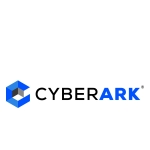CyberArk Labs Publishes New Research on Container Escape Routes
Extends Industry-Leading Research into New Attack Techniques in
DevOps Environments
SAN FRANCISCO–(BUSINESS WIRE)–lt;a href=”https://twitter.com/hashtag/cyber?src=hash” target=”_blank”gt;#cyberlt;/agt;–RSA Conference (Booth #6253 North) — CyberArk
(NASDAQ: CYBR),
the global leader in privileged
access security, today unveiled new research from CyberArk Labs
demonstrating how attackers can manipulate container defense-in-depth
strategies to gain access to an organization’s most valuable assets. The
report is the latest in a series of comprehensive CyberArk
Labs research reports examining how cyber attackers can utilize
existing vulnerabilities to circumvent container security and take
advantage of DevOps environments.
The blog, “The
Route to Root: Container Escape Using Kernel Exploitation,”
describes how known kernel vulnerabilities can be weaponized in
container environments allowing an attacker to escape to the host. The
research found that Linux security controls like seccomp and namespaces
generally provide good security, limiting the attacker’s ability to
escape. However, in cases where the host kernel is vulnerable, those
security controls may be further manipulated by weaponizing existing
exploits to eventually escape the container to the host.
“Containers offer clear operational benefits, and their default security
settings can make an attacker’s life quite difficult,” said Lavi
Lazarovitz, security research team lead, CyberArk
Labs. “The goal of this research was to understand how an
attacker could manipulate existing vulnerabilities in the host from
within the container to escalate privileges and eventually escape to the
host. Understanding how attackers work is important to improving how
organizations can mitigate damage and better protect their assets.”
CyberArk Labs is committed to researching post-exploit environments to
better understand the attack cycle and the movement of attackers. In
this case, the team adapted a publicly available Linux kernel exploit
code to escape a containerized environment and describes mitigation
strategies to limit damage.
For more CyberArk Labs research, visit the CyberArk
Threat Research Blog to read previous research in this area,
including:
-
How
I Hacked Play-with-Docker and Remotely Ran Code on the Host -
Securing
Kubernetes Clusters by Eliminating Risky Permissions
Additionally, at RSA Conference CyberArk Labs will present a session, “Highlighting
Security Blind Spots in the DevOps Butler,” on Tuesday, March 5 at
1:40 p.m. PST.
About CyberArk
CyberArk
(NASDAQ: CYBR)
is the global leader in privileged access security, a critical layer of
IT security to protect data, infrastructure and assets across the
enterprise, in the cloud and throughout the DevOps pipeline. CyberArk
delivers the industry’s most complete solution to reduce risk created by
privileged credentials and secrets. The company is trusted by the
world’s leading organizations, including more than 50 percent of the
Fortune 500, to protect against external attackers and malicious
insiders. A global company, CyberArk is headquartered in Petach Tikva,
Israel, with U.S. headquarters located in Newton, Mass. The company also
has offices throughout the Americas, EMEA, Asia Pacific and Japan. To
learn more about CyberArk, visit www.cyberark.com,
read the CyberArk
blogs or follow on Twitter via @CyberArk,
LinkedIn
or Facebook.
Copyright © 2019 CyberArk Software. All Rights Reserved. All
other brand names, product names, or trademarks belong to their
respective holders.
Contacts
Media Relations Contacts:
Brian Merrill, fama PR
Phone:
+1-617-986-5005
Email: [email protected]
Liz Campbell, CyberArk
Phone: +1-617-558-2191
Email: [email protected]
Investor Relations Contact:
Erica Smith, CyberArk
Phone:
+1 617-630-6426
Email: [email protected]

